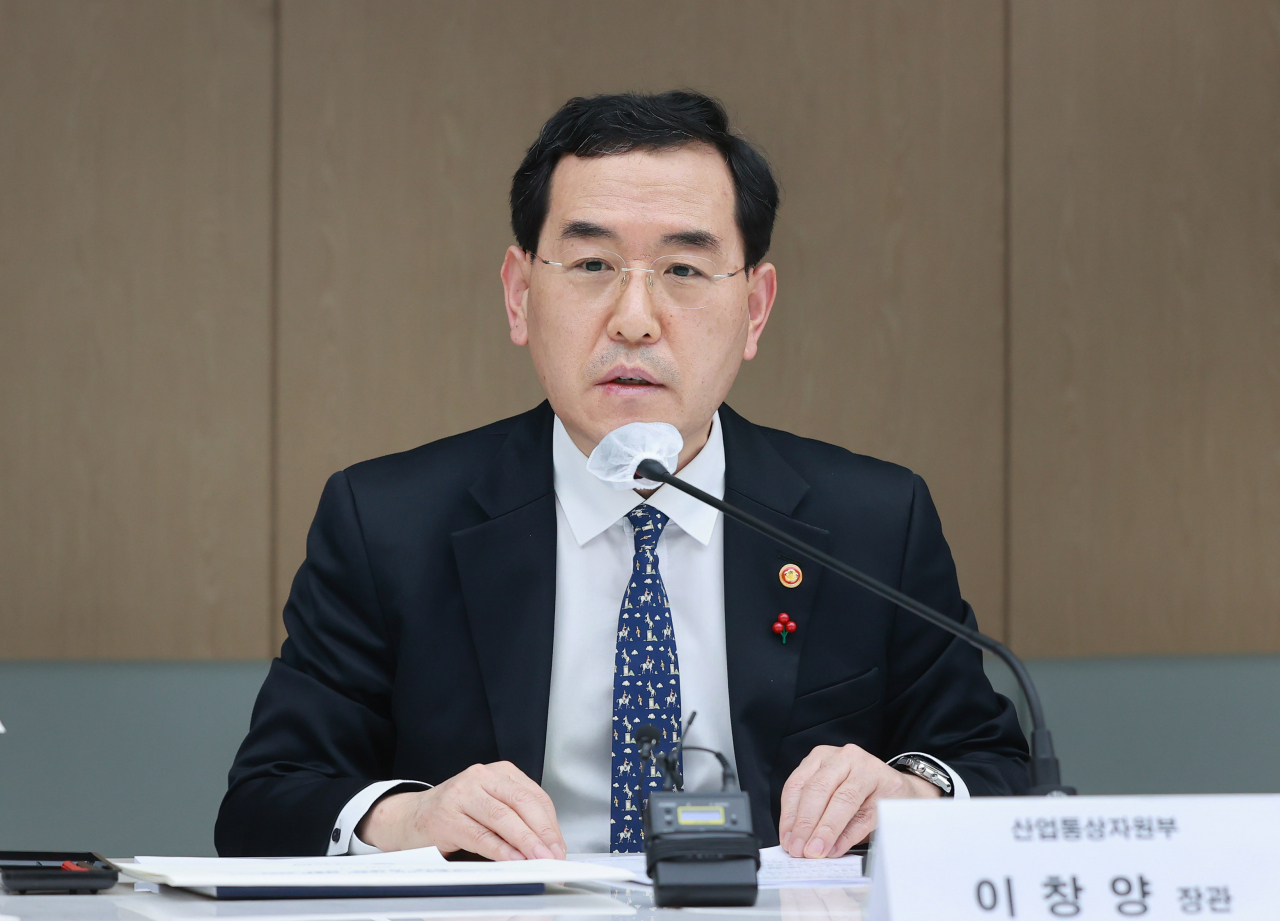 |
Minister of Industry, Trade and Energy Lee Chang-yang speaks in a meeting over business strategies for carbon composite at the Korea Chamber of Commerce and Industry in Seoul on Dec. 6. (Yonhap) |
South Korea will look to make the most of the US Inflation Reduction Act for domestic battery and energy companies while trying to prevent drawbacks for the country’s carmakers, Minister of Industry, Trade and Energy Lee Chang-yang said Wednesday.
“Regarding the IRA, it’s a situation where we have to reduce damages and maximize benefits from the law. We are one of the fastest and strongest responding countries,” Lee said in a meeting with reporters.
The IRA, which was signed into law by US President Joe Biden in August to boost American manufacturing and invest in clean energy, offers up to $7,500 in tax incentives to buyers of electric vehicles assembled in North America. The law has caused concerns for Hyundai Motor Group, the country’s biggest automaker, as the company is currently exporting EVs to the US after manufacturing them at domestic plants.
“Compared to the past, it seems our voices got louder. (Korean) companies have taken action, leading to proposed revisions to the IRA in both the US Senate and House of Representatives. On top of (the movements in) Congress, we have been promptly negotiating with the (Biden) administration,” Lee said.
The proposed revisions from the Senate and House intend to postpone the EV tax credit requirement for three years.
He pointed to increasing the export of eco-friendly cars for commercial use, such as rentals and leases, as the vehicles with this purpose can still receive the IRA’s tax credits even though they are manufactured in Korea.
Mentioning that the Korean government sent its opinion, which went under a “profound legal review” about the IRA’s article on the definition of North American assembly requirements for EVs, to the US, the minister said Washington appears to be thinking over the matter.
“We have had extensive consultations with the Republic of Korea on the Inflation Reduction Act and, in particular, the relevant provisions related to electric vehicles,” said US National Security Advisor Jake Sullivan in a White House press briefing on Dec. 12.
“We believe that we will ultimately have a long-term approach that vindicates the economic interests and needs of American workers and businesses and of our ally in the Republic of Korea,” he said.
The minister noted there are upsides to the IRA that the country’s battery and renewable energy sector can take advantage of it.
“There are many areas where they can benefit from the IRA. Especially the battery sector. We will continue to carry out discussions with (battery companies) and cooperate to lead the battery sector in the US and global markets,” said Lee.
The minister added that more investment for the next-generation battery is in store as the development of next-generation battery technology and production should take place domestically whereas the overseas battery footholds will serve as manufacturing-heavy factories to secure a broader market.
As the IRA plans to spend $369 billion in addressing the domestic energy security and climate change programs over the next 10 years, the minister also underlined that this has opened up business opportunities for Korean companies in the fields of wind and solar power.
Speaking on the likelihood of increasing the electricity rates, Lee said the electricity prices will go up by a “considerable margin” that will not bring a huge shock to households and companies in the first quarter of next year.
“There are many factors contributing to the increase in electricity rates. There are possibilities for the energy situation to change from now, including the status of the Russia-Ukraine war and moving from winter to summer season. We cannot confirm how much the (electricity) prices will go up for the entire next year,” he said.
The minister added that electricity rate hikes will be determined depending on the future situation. The government plans to announce the increased prices before the end of this week.
According to the ministry’s report on normalizing the state-run Korea Electric Power Corp., which was submitted to the National Assembly’s Trade, Industry, Energy, SMEs and Startups Committee earlier this month, next year’s electricity rate should go up by 51.6 won per kilowatt hour. It is 2.7 times bigger than this year’s total rate increase of 19.3 per kilowatt hour.






![[Today’s K-pop] Blackpink’s Jennie, Lisa invited to Coachella as solo acts](http://res.heraldm.com/phpwas/restmb_idxmake.php?idx=644&simg=/content/image/2024/11/21/20241121050099_0.jpg)
